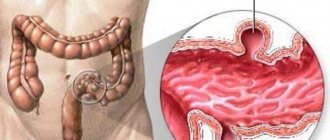General information about dementia
The popular name for dementia is senile insanity or senile dementia. Most often, this disease occurs against the background of aging of the body and accompanying changes. Dementia usually develops after the age of 65, but due to certain diseases, intoxications or injuries it can appear at an earlier age. Damage to the central nervous system is irreversible; properly selected treatment can only stop the process, but not reverse it.
A mild form of the disease occurs in about one in ten people over 65 years of age, and 5% of older people develop a severe form. It leads to a complete loss of the ability to self-care, as a result of which the patient requires constant care and observation. Women are affected twice as often as men.
Make an appointment
Questions and answers
When does alcohol-related dementia begin to develop?
Dementia due to the abuse of alcoholic beverages develops under conditions of prolonged use of alcohol - 10-15 years. The condition is aggravated by vascular pathology and liver diseases.
If a person periodically forgets the names of his relatives in old age, is this developing dementia or simply senile forgetfulness?
This condition is typical for older people. If there are no additional signs of dementia (decreased intelligence and disturbances in the emotional-volitional sphere), there is no need to worry. It is advisable to consult a family doctor or general practitioner.
Causes
The causes of dementia are diseases and conditions that cause degeneration and death of brain cells:
- Alzheimer's disease;
- Pick's disease;
- severe atherosclerotic damage to the vessels of the neck and brain;
- hemorrhagic and ischemic strokes, as well as transient ischemic attacks;
- arterial thrombosis;
- severe arterial hypertension;
- diabetes mellitus (high blood glucose causes angiopathy - damage to small vessels with subsequent oxygen starvation);
- acute and chronic intoxication (including alcohol);
- neuroinfections (encephalitis, meningitis);
- head injuries (concussions, brain contusions);
- malignant and benign brain tumors.
The presence of dementia in parents or other older relatives significantly increases the risk of developing the pathology. Predisposing factors also include excess body weight and insufficient intellectual functioning throughout life.
Possible risk factors for dementia
Dementia or dementia, in addition to various diseases and hereditary factors, can also occur due to external pathological processes that complicate cognitive functions.
Experts include such processes as alcoholism, prolonged depression, infectious diseases (encephalitis, tuberculosis, HIV infection), brain injury or oncology, vitamin deficiency (especially regarding B vitamins), chronic brain hypoxia due to bronchial asthma or cardiac pathologies, lack of synthesis of certain thyroid hormones.
Dementia in these pathologies is distinguished by the possibility of effective therapy until complete recovery, ease of progression in comparison with other causes of its occurrence, and stopping the progression of the disease with timely relief of the provoking factor of its development.
Types of pathology
There are several types of classification of senile dementia. The most common is based on the mechanism of development of the disease. The following types of pathology are distinguished:
- Alzheimer's (atrophic): based on a degenerative process in the cerebral cortex, most often found in Alzheimer's disease;
- cerebrovascular: occurs against the background of chronic insufficiency of blood supply;
- mixed.
The location of pathological foci is the basis of the second classification: cortical, subcortical, mixed and multifocal forms of dementia are distinguished.
Clinical manifestations allow us to distinguish two variants of the disease:
- lacunar dementia: mainly the intellectual sphere suffers, memory suffers, but the person is aware of himself and can assess his condition;
- total: loss of self-service skills and inadequate perception of reality.
Types of dementia in old age
According to the etiological factor, dementia can be:
- vascular,
- atrophic,
- mixed.
Depending on where the lesion is located, the following types of dementia in the elderly are distinguished:
- cortical (in the cortical centers of the brain);
- subcortical (basal ganglia, white matter, limbic system, etc.);
- cortical-subcortical;
- multifocal, accompanied by many foci of brain tissue damage.
Syndromic classification divides dementia into:
- total (changes are rough, pronounced);
- lacunar, or dysmnestic (occurs with milder symptoms).
Pseudodementia is distinguished separately. In this condition, cognitive functions sharply deteriorate due to existing psychiatric pathology (hysteroid psychopathy, depressive disorders).
Severity
There are three degrees of severity of pathology:
- mild: there is a decrease in short-term memory, emotional instability, inability to remember new things; the person can take care of himself independently and understands the need for treatment;
- moderate: self-care becomes difficult; a person begins to forget about basic actions (close the door, turn off the gas), and may get lost on the way to the store; already at this stage the patient requires constant monitoring;
- severe: complete loss of the ability to self-care and critical perception of reality, the need for constant care.
Why does senile dementia occur?
20 years is the age at which the natural process of loss of nerve cells begins. Therefore, a slight impairment of short-term memory is quite normal in all older people. A person begins to forget the names of recent acquaintances, places where he put things, etc. As a rule, problems in everyday life do not arise from this type of deviation. However, if dementia progresses in an elderly person, the distress will be much stronger.
The most common causes of pathology are:
- Alzheimer's disease (65% of all cases);
- impaired vascular function as a result of atherosclerosis, arterial hypertension, poor circulation and blood counts;
- alcohol and drugs;
- Parkinson's disease;
- Pick's disease;
- diabetes;
- head injuries;
- endocrine and autoimmune diseases;
- infectious diseases (AIDS, encephalitis, etc.);
- aggravated diseases of internal organs;
- severe renal and liver failure;
- consequences of the hemodialysis procedure.
Sometimes the progression of the disease in the elderly occurs due to several reasons at once (for example, in the classic senile (senile) mixed form of the disease).
Risk factors leading to the development of dementia:
- age 65 years and above;
- hypertonic disease;
- increased levels of lipids in the blood;
- obesity, as well as lack of physical activity.
- lack of mental activity for three years or more;
- low estrogen levels (only in older women).
We recommend
“Signs of senile dementia and ways to prolong mental health” Read more
Symptoms
The main symptoms of dementia occur in all forms and types of the disease. They include:
- decreased short-term memory;
- difficulty in perceiving new information, learning new skills (for example, working with a computer or smartphone);
- viscosity of thinking: the patient takes a long time to think, he needs more time to solve any problems or issues;
- speech difficulties: slurred pronunciation, difficulty finding words;
- impaired coordination of movements, especially fine motor skills;
- uncertainty, unsteadiness of gait;
- inappropriate behavior: patients become overly sweet or, conversely, aggressive;
- disorientation in space and time.
Different types of dementia have their own characteristic symptoms. For example, the Alzheimer's type is manifested mainly by mental and memory disorders, changes in thinking, and inappropriate behavior. The vascular form of the disease is characterized by both intellectual and motor impairments, and dementia with Lewy bodies often takes on the character of a psychiatric pathology and is accompanied by hallucinations, delusions, insomnia and depression.
Neurological disorders
In the initial stage of the disease, neurological dysfunctions manifest themselves as general symptoms. Weakness and fatigue, absent-mindedness, and irritability appear. I am bothered by systematic headaches and sleep is disturbed. There is an unstable emotional background. Depressive states are possible. The person is unrestrained, hot-tempered, and embittered. Emotional incontinence usually manifests itself in violent crying or laughter, weakness.
Among other neurological indicators, cerebellar syndrome occurs, characterized by uncoordinated movements. It seems that the arms and legs are moving chaotically. Because of this, the gait changes: it becomes shaky, slack. The person appears to be drunk. Instability of the step provokes falls.
The disease causes accentuation of personality traits. For example, if previously a person was scrupulous and meticulous, then pathology turns him into a picky grumbler.
Pseudobulbar syndrome is expressed by a triad of signs:
- dysarthria - pronunciation disorder;
- dysphonia – loss of voice sonority;
- dysphagia – problems with swallowing.
There are cases of paralysis and paresis, but quite rarely. Muscle tone and reflexes are increased.
Quite often, malfunctions in the functioning of the pelvic organs occur, and epileptic seizures occur.
In general, dementia of vascular origin is characterized by narrowness and fixation of mental processes, loss of flexibility of thinking, fading of cognitive abilities, and a narrow range of interests.
Diagnostics
Neurologists and psychiatrists diagnose dementia. The examination includes:
- collecting complaints and medical history, determining the approximate time of onset of the disease, the most pronounced signs, as well as concomitant pathology;
- detailed neurological examination with assessment of reflexes, motor and sensory function;
- general urinalysis, general and biochemical blood tests, tests for hormones, infections, electrolytes, determination of basic blood clotting indicators;
- ECG, ultrasound of the heart;
- CT or MRI of the brain to detect structural lesions;
- Doppler ultrasound of neck and brain vessels;
- electroencephalogram (EEG);
- neuropsychological tests to assess the state of the psyche and the quality of thinking.
If necessary, a more detailed diagnosis is carried out.
Dementia treatment
Treatment depends on its type and extent. The main task of the doctor is:
- normalization of the patient's behavior;
- improving the functioning of the central nervous system;
- improving quality of life.
For mild forms of the disease, the drugs of choice are:
- sedatives for excessive anxiety;
- antidepressants to improve emotional state and correct memory;
- means for improving brain activity that improve the conduction of nerve impulses (donezepil and drugs based on it, neuromidin).
Psychotherapy helps slow the progression of the disease in the first stage. The patient is taught special exercises to train memory and logical thinking. With regular exercise, patients become more adapted to everyday life, and the process of degradation slows down.
Moderate dementia requires the use of drugs to protect nerve cells (Actovegin, Cerebrolysin), as well as drugs to restore memory and thinking (Phenibut). Hypnotics or sedatives may be used symptomatically.
For severe dementia, powerful drugs that stimulate brain activity (memantine, rivastigmine) are used. They are taken constantly and allow the patient to maintain a relatively clear consciousness for as long as possible. For aggressive behavior and hallucinations, antipsychotics (haloperidol) are prescribed.
Selecting medications to support a patient with dementia is a complex task that requires constant interaction between the doctor, the patient and his relatives.
Make an appointment
Caring for a person with dementia
Having a relative with advanced dementia is a real challenge. The behavior and well-being of the patient depends on the behavior of the people around him, which is why it is important to devote a sufficient amount of time to care. To maintain a relatively stable patient's condition, it is recommended:
- organize a clear, understandable and stable daily routine;
- involve a person in family life and communication as much as possible;
- constantly stimulate thinking: solve crosswords, play chess, read and discuss what you read;
- give small tasks around the house so that the patient feels important and useful;
- avoid conflicts, violence, bullying, and excessive care.
As dementia progresses, it is recommended to make your home as safe as possible by removing any dangerous objects and securing heavy furniture. The patient needs constant observation and control, since he can harm himself or get lost simply by leaving the house. Severe degrees require constant care: feeding, hygiene procedures.
Cases of vascular dementia
Scientists have established for certain that the Russian writer, imperial maid of honor Smirnova Alexandra Osipovna, whom A.S. once admired. Pushkin, suffered from vascular dementia.
From her youth, she was distinguished by her gloomy mood or its swings, insomnia. At the age of 40, she suddenly lost weight and became haggard. I didn’t want to see doctors. She was treated on her own: sermons, rituals. Her heredity was burdened with mental disorders.
At the age of 69, her condition worsened further. Her speech became incoherent, she rearranged syllables in words and distorted them. Memory suffered and behavior was disrupted. The mental state deteriorated sharply, reaching the level of mental disorder.
According to data collected from eyewitnesses, Alexandra Osipovna was diagnosed with “atherosclerotic dementia.”
Another famous writer, the author of Uncle Tom's Cabin, Harriet Beecher Stowe, was also diagnosed with vascular dementia. She devoted her entire life to caring for her large family, fighting poverty and disease. In the last years of her life, after the death of her husband, Harriet lived completely alone. She exhibited strange behavior. Sometimes she came to Twain’s house and wandered around the rooms there. She didn’t pay attention to anyone, she was aloof. After walking around a bit among the people, she returned home. Her mental abilities had completely deteriorated, she practically could not take care of herself. The patient's memory underwent special destructive changes.
Prevention
Prevention of dementia helps not only to prevent the development of this pathology, but also to slow down the progression of the process that has already begun. Doctors recommend:
- be promptly examined and treated as necessary;
- avoid excess body weight;
- stop smoking and drinking alcohol;
- regularly engage in amateur sports to maintain tone (walking, swimming, yoga, etc.);
- eat properly and balanced, drink enough clean water;
- avoid stress, physical and mental fatigue;
- engage in mental work regularly.
What is dementia and how does it manifest?
Dementia is not a disease in the usual sense of the word.
According to the International Classification of Diseases, this is a syndrome, that is, a complex of symptoms associated with a common cause. It is observed in certain brain diseases or develops due to other factors. One of the first signs of dementia is memory loss. Both long-term and short-term memory weakens: the patient may forget familiar routes and names, ask for the same information over and over again, lose personal belongings, etc. At the same time, the ability to assimilate and process information is impaired.
Additionally, with dementia, at least one group of symptoms from the following list (or several at once) is noted:
- The ability to think logically and solve complex problems is impaired.
- Critical thinking deteriorates. This means that a patient with dementia cannot make decisions and manage money independently; he ceases to see dangers in the environment.
- Speech function is impaired. A person makes mistakes and forgets familiar words, stops understanding phrases in a figurative sense, and pauses when speaking. As the syndrome develops, it becomes increasingly difficult for him to express his thoughts and communicate with loved ones.
- The ability to think in abstract categories is lost.
- The ability to visually recognize objects in space deteriorates. A person has difficulty recognizing people by their faces; he may forget what his house looks like and why the surrounding objects are needed. At the same time, physical vision may remain good - it’s just a matter of cognitive function.
- Human behavior changes and personality disintegrates. The range of interests may narrow, apathy, aggression towards others, sudden mood swings and a desire to avoid social contacts may appear.
Treatment at the Energy of Health clinic
Neurologists at the Energy of Health clinic offer the most effective treatment and prevention methods for senile dementia today:
- reliable drug regimens that are selected on an individual basis;
- course treatment using intravenous infusions (droppers) in a day hospital;
- Psychiatric consultations and psychotherapy;
- training in home prevention and patient care.
We will conduct a full examination of the patient to identify concomitant pathologies and select medications with a minimum number of contraindications, as well as organize spa treatment if necessary.
Human rights
People with dementia are often deprived of the basic rights and freedoms available to other people. In many countries, physical and chemical agents are widely used to restrain patients in nursing homes and intensive care facilities, even though regulations are in place to protect human rights to freedom and choice.
Providing high-quality care for people with dementia and their carers requires appropriate and supportive regulations, based on internationally recognized human rights standards.
Advantages of the clinic
The Health Energy Clinic provides qualified medical care in various areas. We offer each patient:
- screening diagnostic examinations;
- targeted diagnostics using modern equipment and laboratory research;
- consultations with experienced specialists who regularly improve their skills, as well as foreign experts;
- individual selection of complex treatment;
- disease prevention activities;
- organization of sanatorium-resort treatment according to indications;
- own day hospital for course treatment.
Senile dementia turns the life of a person and his family into a real hell. Do not allow the disease to progress. Sign up your loved ones for an examination at Health Energy and let our specialists choose the most effective treatment.
WHO activities
WHO recognizes dementia as a public health priority. In May 2022, the World Health Assembly endorsed the Global Health Sector Action Plan for the Dementia Response 2017–2025. The Plan provides a comprehensive program of action for policymakers, international, regional and national partners and WHO in the following areas:
- making dementia a public health priority; raising awareness of dementia and creating dementia-friendly initiatives for people with dementia; reducing the risk of developing dementia;
- reducing the risk of developing dementia; diagnosis, treatment and care;
- dementia information systems; support for carers of people with dementia; And
- scientific research and innovation.
An international monitoring platform, the Global Observatory on Dementia, has been established for policy-makers and researchers to facilitate the monitoring and exchange of information on dementia policy, health care, epidemiology and research. WHO is also developing a knowledge sharing platform to facilitate the sharing of best practices in dementia.
WHO has developed a dementia response action plan to assist Member States in developing and operationalizing dementia action plans. This guidance is closely linked to the WHO Global Observatory on Dementia and includes relevant tools, such as a checklist, to guide the preparation, development and implementation of dementia action plans. Additionally, this guide can be helpful in identifying stakeholders and setting priorities. The WHO Guidelines for Reducing the Risk of Cognitive Impairment and Dementia provide evidence-based recommendations for interventions to reduce modifiable risk factors for dementia, such as physical inactivity and unhealthy diet, and to manage medical conditions associated with dementia, including hypertension and diabetes.
Dementia is also a priority condition in the Mental Health Gap Action Program (mhGAP), an important resource for general practitioners, especially in low- and middle-income countries, to use in providing first-line care for mental, neurological and substance use disorders.
WHO has developed iSupport, a program that provides information and skills to caregivers of people with dementia. The web-based iSupport program is available as a printed manual and is already in use in a number of countries. An online version of “iSupport” will be available soon.





